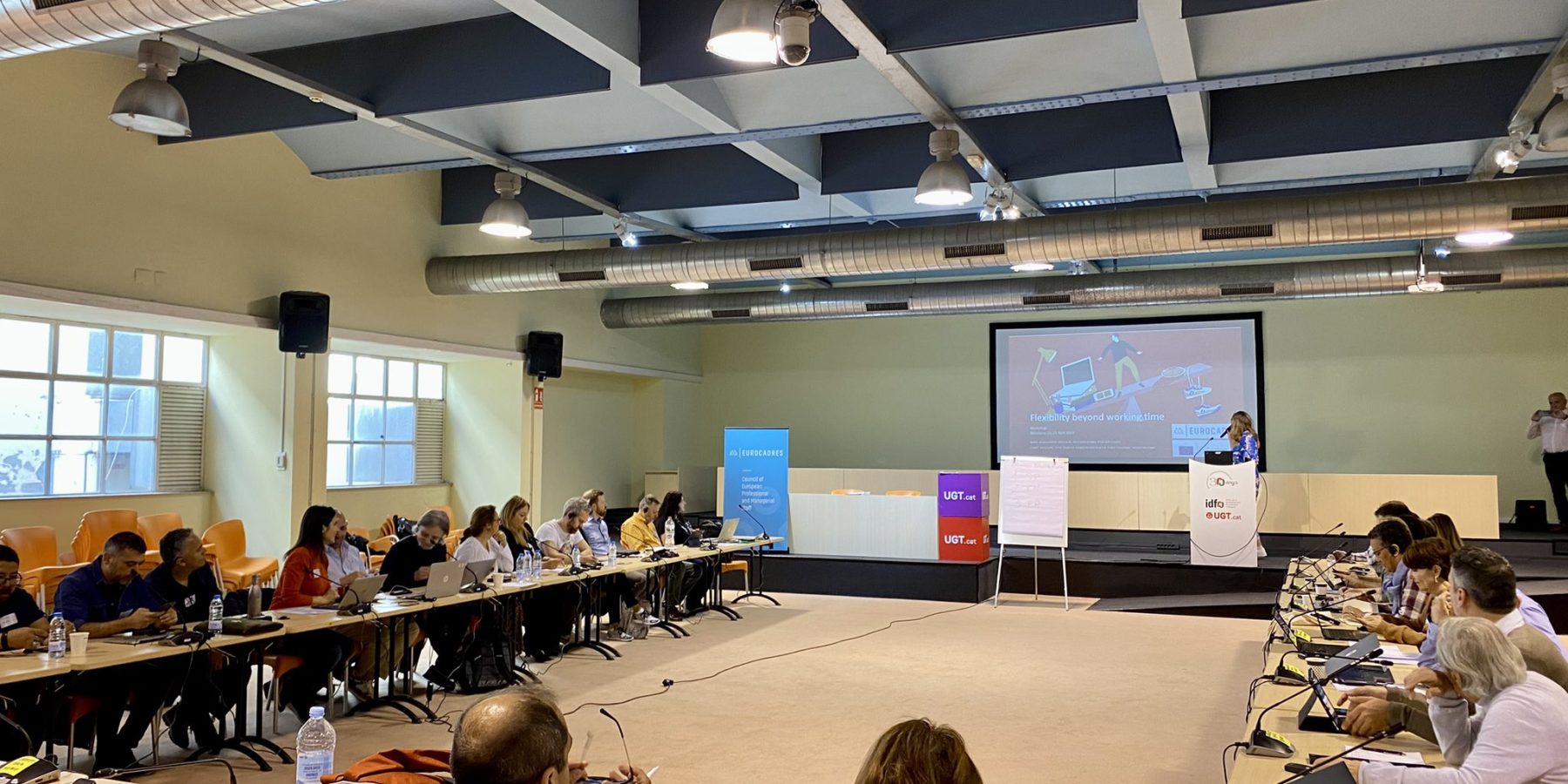
Flexibility at work brought to Barcelona
Latest workshop in our flex@work project takes place.

Following our first communications workshop in February, Eurocadres welcomed over 40 trade unionists to the second event in Flex@Work project, hosted by UGT in Barcelona from 20-21 April.
Building on the key concepts of flexible working conditions, we began by focusing on flexible time and location arrangements, helping to contextualise the benefits and risks that flexible arrangements may have, ranging from teleworking to atypical work relationships. Before delving into the practical implementation of such arrangements, Eurofound’s Oscar Vargas Llave presented us with the recent report The rise in telework: Impact on working conditions and regulations. The findings of this report provided an overview of the key trends on teleworking, the landscapes in different Member States, impacts on workers, and underlying differences that sectors experience when working with flexibility.
These findings and theoretical understandings were reflected in the presentation of Spanish companies, SEAT and Nissan, whose trade union representatives participating in the workshop. The reflections included a look into the SEATs new flexible work arrangements, which held a number of measures to mitigate the adverse impacts distant work may have.
Nissan provided an overview of the reduced working hours and working days in the company. These related in particular to seasonal arrangements, which have a long historical backing in the metal industries. Similarly the overview included a view on worktime reduction, transitioning nicely into day two’s presentation on the Spanish pilot initiative on 4-day working week.
UGT’s Paula Ruiz Torres presented the 24-month initiative for a 4-day working week and explained the project in detail, including the methodological approach and scope of the project, and the evaluation steps of the impacts a 4-day workweek has. As always, the transformation of work life provides a number of disruptions and potential pitfalls, all of which (along with unintended benefits) require comprehensive assessment to understand their true impacts.
Further discussions on trend and key concepts, met with practical challenges highlighted in the Spanish cases, led to a focused debate and series of group activities on how to utilise the different flexibility concepts in other EU countries. Participants mapped the key impacts different flexibility transitions have and how to bring those into their daily representative work, while discussing potential next steps with our project expert Nina Hedegaard.
Our work in this area will continue in June, with Copenhagen the next venue for project workshops. With support from the European Commission, Eurocadres will continue to work on this project and it’s outputs until 2024, with a lot of ground yet to cover in this field.
